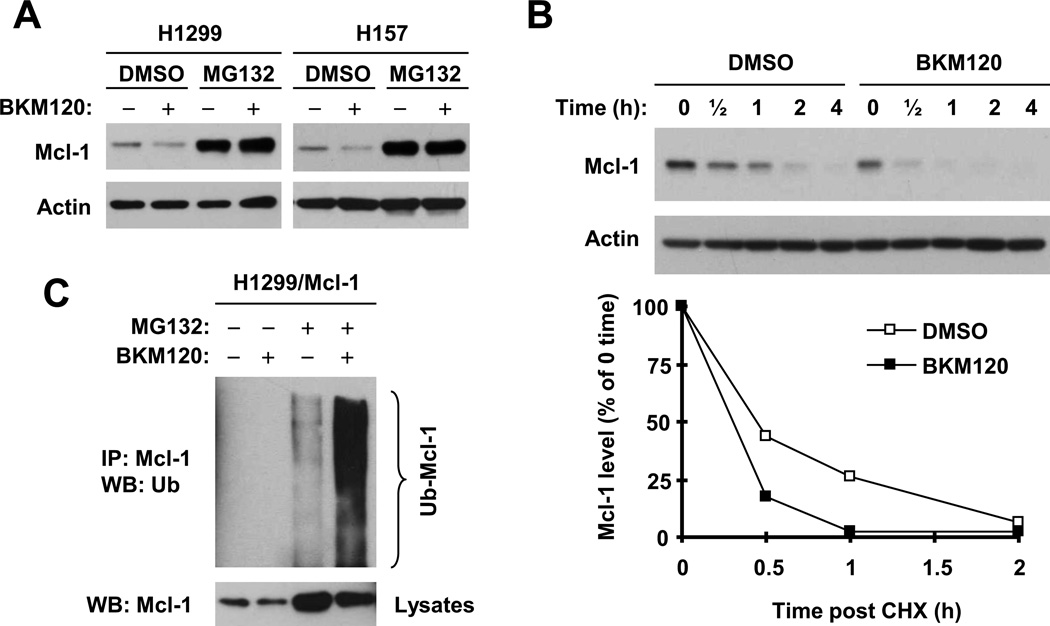Fig. 6. BKM120 induces proteasome-mediated Mcl-1 degradation (A), decreases Mcl-1 stability (B) and increases Mcl-1 ubiquitination (C).
A, Both H157 and H1299 cells were pre-treated with 20 µM MG132 for 30 minutes prior to the addition of 2 µM BKM120. After co-treatment for an additional 6 h, the cells were harvested for preparation of whole-cell protein lysates and subsequent Western blot analysis. B, H1299 cells were treated with 2 µM BKM120 for 6 h. The cells were then washed with PBS 3 times and refed with fresh medium containing 10 µg/ml cycloheximide (CHX). At the indicated times, the cells were harvested for preparation of whole-cell protein lysates and subsequent Western blot analysis. Protein levels were quantified with NIH Image J software (Bethesda, MA) and were normalized to actin. The results were plotted as the relative Mcl-1 levels compared to those at the time 0 of CHX treatment (bottom panel). C, H1299/Mcl-1 cells were transfected with HA-ubiquitin expression plasmid using X-tremeGENE 9 DNA transfection reagent, After 24 h, the cells were pre-treated with 20 µM MG132 for 30 min and then co-treated with 2 µM BKM120 for another 4 h. Whole-cell protein lysates were then prepared for IP using anti-Mcl-1 antibody followed by Western blotting (WB) using anti-HA antibody for detection of ubiquitinated Mcl-1 (Ub-Mcl-1).

